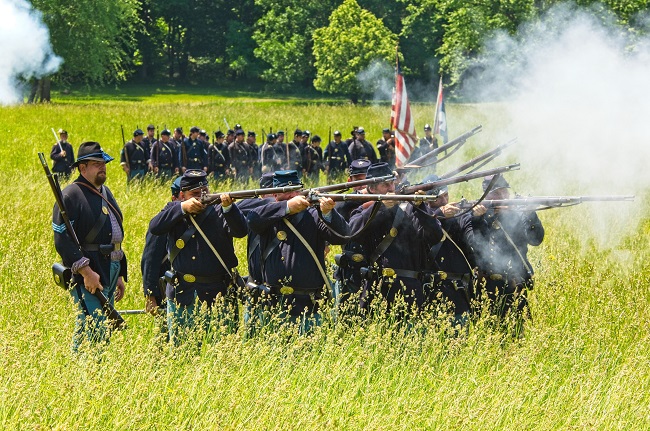
Vermont played a significant role in the American Civil War (1861-1865). Despite its small population, Vermonters contributed bravely and selflessly to the Union cause. In this article, we will explore Vermont’s role in the Civil War, highlighting its soldiers’ valor, their impact on the battlefield, and the state’s staunch commitment to the abolitionist movement.
Vermonters Answering the Call
When President Abraham Lincoln issued the call for volunteers after the Confederate attack on Fort Sumter, Vermont responded swiftly and decisively. The state sent more than 34,000 of its sons to fight for the Union, despite having a population of less than 350,000 at the time. This per capita contribution was one of the highest among all the Northern states.
Notable Vermont Units and Leaders
Vermonters served in various regiments throughout the war, making notable contributions on numerous battlefields. The 1st Vermont Brigade, under the command of General George J. Stannard, distinguished itself at the Battle of Gettysburg in 1863. Known as the “Iron Brigade,” these brave Vermont soldiers played a crucial role in repelling Pickett’s Charge, a turning point in the battle.
Another notable Vermonter was General William Wells, who served as a cavalry officer and played a key role in the Battle of Cedar Creek in 1864. Wells and his men successfully defended against Confederate forces, helping secure a Union victory.
Notable Battles and Contributions
Vermont soldiers fought in several significant battles throughout the Civil War. They participated in key engagements, including the Battles of Antietam, Fredericksburg, Chancellorsville, and the Wilderness. Vermont’s soldiers demonstrated bravery, resilience, and tenacity in the face of adversity, earning a reputation as fierce fighters.
Vermont’s Commitment to Abolitionism
Beyond their military contributions, Vermonters were staunch supporters of the abolitionist movement. Vermont became the first state to abolish adult slavery in its constitution in 1777. During the Civil War, the state actively contributed to the Underground Railroad, helping enslaved individuals escape to freedom in Canada.
Vermonters also played a vital role in shaping national policy. Senator Jacob Collamer, an outspoken abolitionist, worked tirelessly for the passage of the Emancipation Proclamation and the Thirteenth Amendment, which abolished slavery throughout the United States.
Remembering Vermont’s Heroes
Vermont’s contributions to the Civil War are commemorated through various memorials and historical markers. The Vermont State House in Montpelier features a Civil War statue known as “The Spirit of the Republic,” paying tribute to the state’s soldiers. The Vermont Veterans Memorial Cemetery, located in Randolph Center, serves as a final resting place for many of the state’s fallen heroes.
Conclusion
Vermont’s role in the Civil War was far greater than its small population would suggest. The bravery and sacrifice of Vermont soldiers on the battlefield, coupled with the state’s commitment to the abolitionist cause, left an indelible mark on the nation’s history. Vermonters’ unwavering dedication to preserving the Union and fighting for freedom exemplified the spirit of the Green Mountain State, and their legacy continues to be honored and remembered to this day.
Related Articles & Free Vermont Maturity Magazine Subscription

Skiing in Vermont: Big Ideas and Quirky Characters
The Vermont Republic – The Story of When Vermont was an Independent Country




Comment here